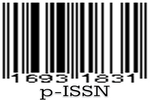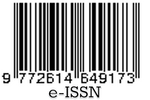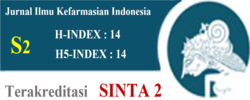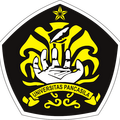Analysis of Factor Influencing public Public Drug management in District Pharmacy Installation (Study in Southern Papua Area)
Abstract
Public drug management is purposed to ensure availability of quality drug with proper type and quantity, distributed well and orderly. Recent problem of public drug management is the level of drug availability which has not been suitable with the health care need since inadequate supply still occur in one part and oversupply in other part. This research was aimed to indentify what factors are influencing public drug management and to identify public drug management function. This is an observational using cross sectional data collection method, presented descriptively in District Pharmacy Installation and descriptive in nature. Result of research showed that public drug management were influenced by factors such as packing and maintenance funds which is not evenly distributed, staff education which have not met the required need, governance which were not yet performed and drug management facility/ tools which were partially incomplete. The description of drug management are as following: drug procurement fund allocation of 114.02%, drug availability with disease pattern of 170.87%, planning accuracy of 114.02%, essential drug of 70.16%, generic drug of 87.87%,drug procurement has not been met all contract books of 77.00%, drug availability of 75.75%, broken and expired drug of 7.01%, drug vacant time mean of 0.37%, drug distribution accuracy of 57.68% and distributed drug deviation of 17.30%.
References
2. Kruger J. Anti-counterfeiting in global pharmaco- vigilance. Bonn: University Bonn; 2011. 3.
3. Management Sciences for Health. Management sciences for health and world health organization. Drug and Therapeutics Committee Training Course, Session 5. Pharmaceutical Quality Assurance, Participants’ Guide. Arlington: Management Sciences for Health; 2007. 12.
4. Pemerintah RI. Peraturan Presiden Republik Indonesia, Nomor 72 tahun 2012. Sistem Kesehatan Nasional. Jakarta: Pemerintah RI; 2012. 335.
5. Departemen Kesehatan RI. Keputusan Menteri Kesehatan Republik Indonesia Nomor: 1426/Menkes/ SK/XI/2002 tentang Pedoman Pengelolaan Obat Publik dan Perbekalan Kesehatan. Jakarta: Depkes RI; 2002. Bab 1, Bab 4.
6. Seto S, Nita Y, Triana L. Manajemen farmasi: Apotek, farmasi rumah sakit, pedagang farmasi, industri farmasi. Surabaya: Airlangga University Press; 2008. 94. 7. Departemen Kesehatan RI. Materi Pelatihan Pengelolaan Obat di Kabupaten/Kota. Jakarta: Direktorat Bina Obat dan Perbekalan Kesehatan; 2003. Modul 3.
8. Tambunan, RM. Pedoman penyusunan standard operating procedures (SOP). Jakarta: Maiestas Publishing; 2013. 27-8.
9. Kementerian Kesehatan RI. Materi Pelatihan Manajemen Kefarmasian di Instalasi Farmasi Kabupaten/Kota. Jakarta Direktorat Bina Obat Publik dan Perbekalan Kesehatan; 2010. 66-8.
Licencing
All articles in Jurnal Ilmu Kefarmasian Indonesia are an open-access article, distributed under the terms of the Creative Commons Attribution-NonCommercial-ShareAlike 4.0 International License which permits unrestricted non-commercial used, distribution and reproduction in any medium.
This licence applies to Author(s) and Public Reader means that the users mays :
- SHARE:
copy and redistribute the article in any medium or format - ADAPT:
remix, transform, and build upon the article (eg.: to produce a new research work and, possibly, a new publication) - ALIKE:
If you remix, transform, or build upon the article, you must distribute your contributions under the same license as the original. - NO ADDITIONAL RESTRICTIONS:
You may not apply legal terms or technological measures that legally restrict others from doing anything the license permits.
It does however mean that when you use it you must:
- ATTRIBUTION: You must give appropriate credit to both the Author(s) and the journal, provide a link to the license, and indicate if changes were made. You may do so in any reasonable manner, but not in any way that suggests the licensor endorses you or your use.
You may not:
- NONCOMMERCIAL: You may not use the article for commercial purposes.
This work is licensed under a Creative Commons Attribution-NonCommercial-ShareAlike 4.0 International License.





 Tools
Tools





















